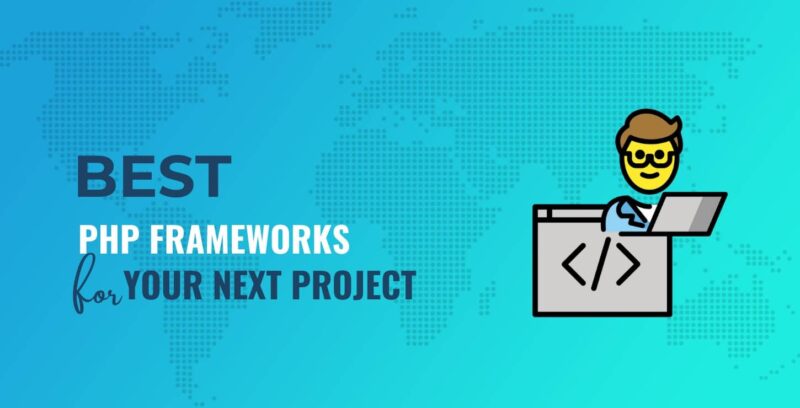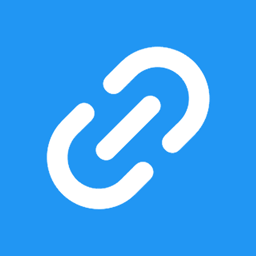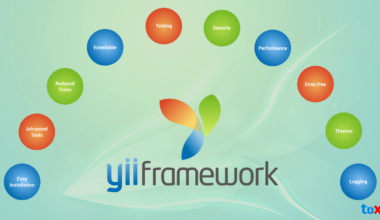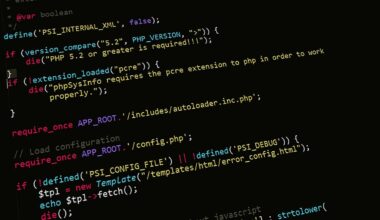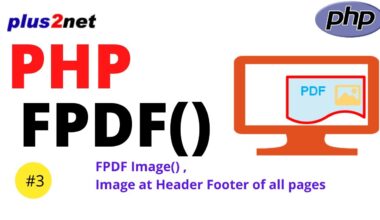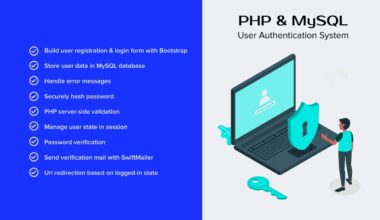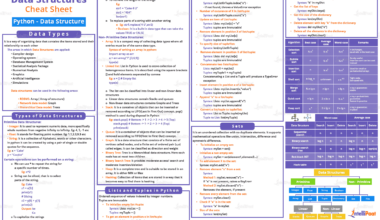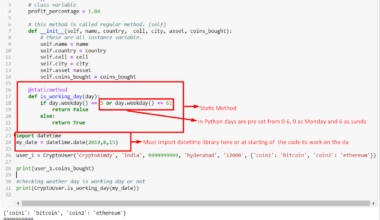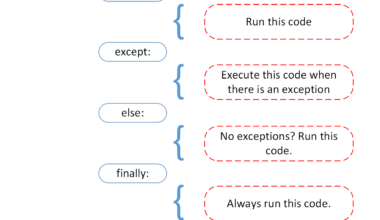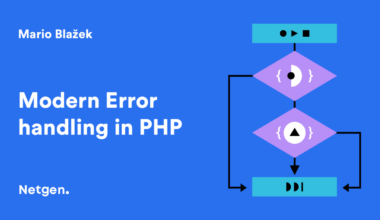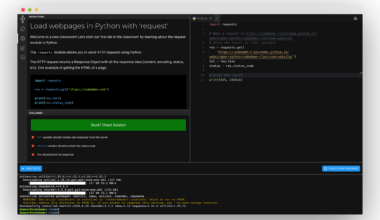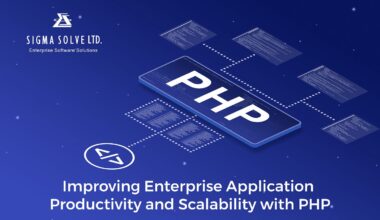Introduction to PHP Database Frameworks
As a PHP developer, you may have heard about PHP database frameworks. In simple terms, a PHP database framework is a set of tools and libraries that help you build web applications faster and more efficiently.
PHP frameworks can save you a lot of time and effort by providing ready-made solutions that you can use to build your web application. Instead of starting from scratch, you can use a PHP database framework to handle common tasks such as database connection, authentication, and data validation.
Using a PHP database framework can also help you write more secure and stable code. Most frameworks come with built-in security features that help you prevent common security issues such as SQL injection and cross-site scripting.
Another advantage of using a PHP database framework is that it can help you write more maintainable code. Most frameworks follow the Model-View-Controller (MVC) architecture, which separates the application logic into three distinct layers. This makes it easier to maintain and test your code over time.
There are many PHP database frameworks available, each with its own set of features and benefits. Some of the most popular PHP frameworks include:
- Laravel
- CodeIgniter
- Symfony
- Yii
- Zend Framework
Each of these frameworks has its own strengths and weaknesses, so it’s important to choose the framework that best suits your needs.
In the next section, we’ll discuss the advantages of using a PHP database framework for building powerful apps.
Advantages of Using a Framework
Using a PHP database framework has numerous advantages that can help you build powerful apps more efficiently. In this section, let’s dive deep into the benefits of using a PHP database framework.
1. Faster Development Time
One of the significant advantages of using a PHP database framework is the accelerated development time it offers. With pre-built libraries and tools, a framework can help you create an application in a shorter time frame than building from the ground up. You can save a lot of time by using a framework’s pre-built tools and libraries, allowing you to focus on building your application’s unique features.
2. Consistency in Code
A PHP database framework encourages consistency in your code, making it easier to maintain and keep track of your application’s development. By following the framework’s structure and conventions, you can ensure that your code is organized, easy to understand, and maintainable over time.
3. Better Security Features
Most PHP database frameworks come with built-in security features to help keep your application secure. These security features can help protect against common security threats such as SQL injection, cross-site scripting, and cross-site request forgery. You don’t have to worry too much about security issues as most of the security concerns have been covered by the framework.
4. Large Community Support
PHP database frameworks have large, active communities that offer support, documentation, and resources. If you encounter any issues while building your application, you can rely on the community to help you out. The community can also provide you with valuable resources such as tutorials, blogs, and plugins that can help improve your application.
5. Scalability
PHP database frameworks are built to be scalable, making it easier to add new features and functionalities as your application grows. A framework can help you manage your application’s growth, making it easy to add new features and functionalities without affecting the existing codebase.
In conclusion, using a PHP database framework offers numerous advantages that can help you build powerful applications more efficiently. With faster development time, consistency in code, better security features, large community support, and scalability, a framework can help you build high-quality applications that meet your business needs. In the next section, we’ll discuss some of the popular PHP database frameworks available in the market.
Popular PHP Database Frameworks
There are many PHP database frameworks available in the market, and each of them has its own set of features and benefits. In this section, we’ll discuss some of the most popular PHP database frameworks that you can use to build powerful apps.
1. Laravel
Laravel is one of the most popular PHP frameworks out there. It’s an open-source framework that follows the MVC architecture pattern. It provides a robust set of tools and features that make it easy to build complex web applications. Laravel comes with built-in authentication, database migrations, and a powerful templating engine called Blade. It’s also known for its elegant syntax and developer-friendly documentation.
2. CodeIgniter
CodeIgniter is another popular PHP framework that’s known for its speed and simplicity. It’s a lightweight framework that’s easy to learn and use. CodeIgniter follows the MVC pattern and comes with a set of libraries that can help you handle common tasks such as database connectivity, form validation, and session management. It’s a great framework for building small to medium-sized applications.
3. Symfony
Symfony is a PHP framework that’s known for its flexibility and scalability. It’s a full-stack framework that comes with a set of reusable components that you can use to build complex web applications. Symfony follows the MVC pattern and provides a robust set of features such as routing, templating, and form handling. It’s a great framework for building enterprise-level applications.
4. Yii
Yii is a high-performance PHP framework that’s designed for building web applications at scale. It’s known for its speed and security features. Yii uses the MVC pattern and provides a set of features such as caching, authentication, and RBAC (Role-Based Access Control). Yii is a great framework for building large-scale web applications.
5. Zend Framework
Zend Framework is a powerful PHP framework that’s known for its modularity and extensibility. It’s a full-stack framework that comes with a set of components that you can use to build complex web applications. Zend Framework follows the MVC pattern and provides a set of features such as database connectivity, form handling, and authentication. It’s a great framework for building enterprise-level applications.
In conclusion, choosing the right PHP database framework is crucial for building powerful and scalable web applications. Whether you’re building a small or large-scale application, there
Features of a Powerful Database Framework
A powerful PHP database framework should have specific features that make it stand out from other frameworks. These features can help you build robust, scalable, and maintainable applications. In this section, we’ll discuss some of the critical features of a powerful database framework.
1. Object-Relational Mapping (ORM)
Object-Relational Mapping (ORM) is a technique that allows you to work with databases using object-oriented programming concepts. A powerful PHP database framework should have a robust ORM layer that can map objects to database tables, making it easier to work with data and manipulate it. ORM provides an abstraction layer between the database and the application, making it easier to maintain and scale the application over time.
2. Query Builder
A query builder is a tool that allows you to build SQL queries using a fluent API instead of writing raw SQL code. A powerful PHP database framework should have a query builder that can help you write complex database queries without the need for writing raw SQL code. This makes it easier to write maintainable and scalable code, and also reduces the risk of SQL injection attacks.
3. Templating Engine
A templating engine is a tool that allows you to separate your application’s logic from its presentation. A powerful PHP database framework should have a templating engine that can help you create reusable views and templates, making it easier to maintain and update the application’s user interface. Templating engines also make it easier to work with HTML, CSS, and JavaScript, and can help you create responsive and accessible user interfaces.
4. Dependency Injection Container
A dependency injection container is a tool that allows you to manage your application’s dependencies and inject them where they are needed. A powerful PHP database framework should have a robust dependency injection container that can help you manage your application’s dependencies and make it easier to write maintainable and testable code. Dependency injection containers can also help you achieve loose coupling between your application’s components, making it easier to update and maintain the application over time.
5. Testing Framework
A testing framework is a tool that allows you to write automated tests for your application. A powerful PHP database framework should have a testing framework that can help you write unit tests, integration tests, and functional tests. Testing frameworks can help you improve the quality of your code, reduce the risk of bugs and errors, and make
Best Practices for Building Apps with a Framework
Building apps using a PHP database framework can be an efficient and effective way to develop high-quality web applications. However, to get the most out of a framework, there are some best practices that developers should follow. In this section, we’ll discuss some of the best practices for building apps with a PHP database framework.
1. Follow the Framework’s Architecture
One of the most important best practices for building apps with a PHP database framework is to follow the framework’s architecture. Most frameworks follow the MVC architecture pattern, which separates the application logic into three distinct layers: Model, View, and Controller. By following the framework’s architecture, you can ensure that your code is organized, maintainable, and easy to understand.
2. Use Built-in Libraries and Tools
Another best practice for building apps with a PHP database framework is to use the framework’s built-in libraries and tools. Most frameworks come with pre-built libraries and tools that can help you handle common tasks such as database connectivity, authentication, and validation. By using these pre-built libraries and tools, you can save time and effort and focus on building your application’s unique features.
3. Write Clean and Maintainable Code
Writing clean and maintainable code is another best practice for building apps with a PHP database framework. By following best practices such as using meaningful variable names, avoiding duplicated code, and keeping functions short and focused, you can ensure that your code is easy to understand and maintain.
4. Optimize Your Code for Performance
Optimizing your code for performance is another important best practice for building apps with a PHP database framework. By following best practices such as minimizing database queries, caching frequently accessed data, and optimizing your code for speed, you can ensure that your application performs well and delivers a great user experience.
5. Test Your Code
Testing your code is another best practice for building apps with a PHP database framework. By writing automated tests such as unit tests, integration tests, and functional tests, you can ensure that your code works as expected and meets your application’s requirements. Testing your code can also help you catch bugs and errors early in the development process, reducing the risk of costly mistakes.
In conclusion, following best practices is crucial for building high-quality web applications with a PHP database framework. By following best practices such
Final Thought: The Future of PHP Database Frameworks
PHP database frameworks have come a long way since their inception. They have evolved to become more powerful, feature-rich, and developer-friendly. As web development continues to evolve, the future of PHP database frameworks looks bright. Here are some trends that we can expect to see in the future of PHP database frameworks.
1. Increased Focus on Security
Security is always a concern in web development, and PHP database frameworks are no exception. In the future, we can expect to see increased focus on security features in PHP database frameworks. Frameworks will continue to provide built-in security features such as encryption, input validation, and CSRF protection to ensure that web applications built using these frameworks are secure.
2. Better Integration with Cloud Services
As more and more businesses move their applications to the cloud, the future of PHP database frameworks lies in better integration with cloud services. In the future, we can expect to see PHP database frameworks that provide better integration with cloud services such as Amazon Web Services, Microsoft Azure, and Google Cloud Platform. This will make it easier for developers to build and deploy web applications in the cloud.
3. More Focus on Microservices Architecture
Microservices architecture is becoming more popular in web development. It involves breaking down large applications into smaller, independent services that can be developed and deployed independently. In the future, we can expect to see PHP database frameworks that provide better support for microservices architecture. Frameworks will provide tools and libraries that make it easier to build and deploy microservices-based applications.
4. Increased Emphasis on Performance
Performance is always a concern in web development. In the future, we can expect to see PHP database frameworks that provide better performance. Frameworks will provide tools and libraries that help developers optimize their code for better performance. We can also expect to see frameworks that provide better support for caching, load balancing, and other performance-related features.
5. More Emphasis on Machine Learning and AI
Machine learning and AI are becoming more prevalent in web development. In the future, we can expect to see PHP database frameworks that provide better support for machine learning and AI. Frameworks will provide tools and libraries that make it easier for developers to build and deploy machine learning and AI-based applications.
In conclusion, the future of PHP database frameworks
